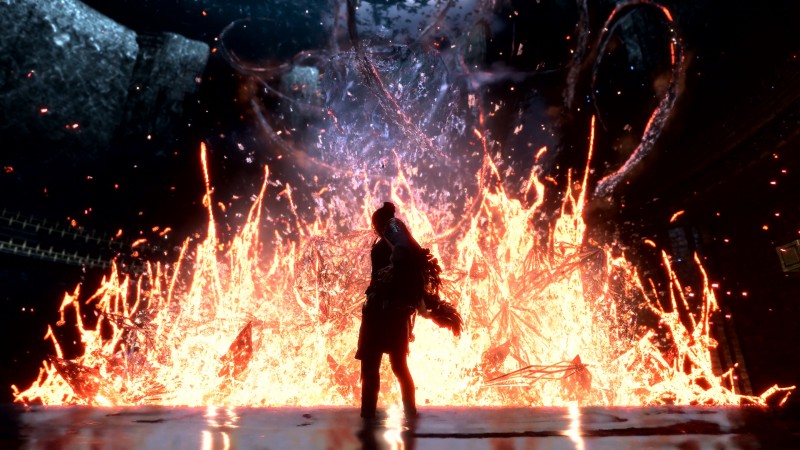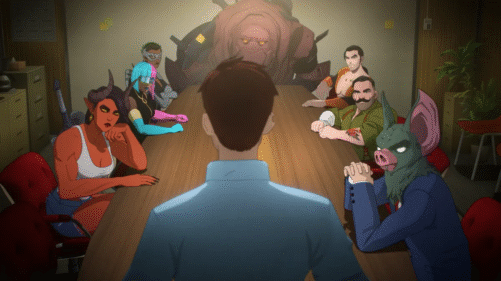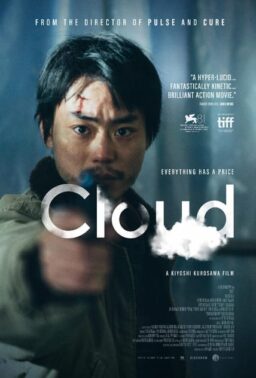I was hoping for an exciting new IP to start the gaming year right, but Square Enix’s “Forspoken” keeps fighting what works well about it with so many elements that are underdeveloped or downright incomplete. It’s a game with strong voice work, some interesting storytelling twists, and the potential for a robust action experience, but it has a woefully bland setting, repetitive combat, and a clunky spell-casting system. There’s a version that took another year or maybe even two in development and downright shook the gaming landscape. It’s not hard to see that potential here. It’s just so woefully unfulfilled.
“Forspoken” works from such an obvious “Alice in Wonderland” template that it even drops in literal references to the classic fairy tale. This time, Alice is Frey (Ella Balinska of the recent Netflix “Resident Evil” reboot), a New Yorker who has been getting into trouble in the Big Apple when she’s inexplicably transported to the magical world of Athia. It’s also a template that owes a great deal to a Japanese form of fiction called an Isekai, which are typically fantasy or sci-fi tales in which someone gets transported to another world where he or she is the savior of this imaginary land. These saviors usually have magical powers and have to save the day in order to return to their own reality.

That’s exactly what’s set out in front of Frey when she learns that Athia is under the vicious thumb of its version of Wonderland’s Red Queen—powerful magicians known as Tantas, who are voiced by Janina Gavankar, Pollyanna McIntosh, Claudia Black, and Kendall Rae. Before she can battle these beings, Frey must learn the extent of her powers, trained and guided by a magical cuff on her arm voiced by Jonathan Cake (Shade from “Stargirl”).
About those powers: Frey has an ever-expanding arsenal of spells, and I mean an arsenal. Frey eventually learns four different kinds of magic, each with a tree of spells that can be unlocked and upgraded. The left trigger button unleashes a “Support” magic that’s typically more defensive, while the right trigger button goes with the more offensive options that give the game the feel of a magical shooter. There are so many options that you’re better off picking your favorites and sticking with them (I used a Burst Shot in the first tree and a support spell that drops a magic-shooting plant), but there will be times when you have to switch between magic types to tap into the vulnerabilities of various enemies. It’s kind of overwhelming in that you can complete the game without even unlocking a bunch of the spells, much less complete the challenges to upgrade them all. But I was surprised at how quickly I adjusted to the cluttered system, shifting between magic types mid-battle when needed.
Still, the combat in “Forspoken” has a remarkable sameness, amplified by its weak character design and weaker settings. You travel to different regions of Athia, but they all look vaguely the same—hills and valleys with different color palettes slapped on them. The world-building in “Forspoken” is its most disappointing aspect. Sure, there are long-cut scenes in Cipal, the besieged capital you return to regularly, but the bulk of the game takes place over a world that’s cold and narratively flat. This is one of those RPGs in which you do the same thing over and over—clear enemies out of an infested building, run a challenge for time, explore labyrinths to obtain upgrades, find fast travel refuges—and it’s startling how much of it makes for a boring blend. There’s a much stronger version of “Forspoken” that puts far more attention into the world of Athia, and one wonders if the pandemic impacted the game’s development and caused many corners to be cut. Some villages in this world feel half-designed, as if someone stopped working on them before the game was released.

The game works much better when it focuses on its heroine. Frey has a parkour ability to race across the landscape and climb to unreachable heights that’s pretty addictive. I enjoyed zipping through this world, looking for something new to blast with a spell I just learned or using a new movement spell to reach a different area. The movement also plays well into combat, allowing Frey’s parkour moves to help dodge and attack from the side or behind.
And I’ll admit there’s something addictive about the sameness of “Forspoken.” Over a relatively small 15-hour play time—although I’ve only scratched the surface of side quests and locations to explore that could probably double that time—I found myself enjoying becoming an increasingly powerful wizard. But while the B-movie escapism factor of “Forspoken” is fun enough as a diversion, one wishes it could have been grounded with richer storytelling and world-building. There are so many mechanics here that work and gameplay structures that are simply fun, and yet they’re all against a backdrop that feels like it should be better. Still, while I would never recommend full price for a game that’s this mediocre overall, I can’t help but root for “Forspoken” to succeed just to see what could be done in this universe and with this character in a more accomplished sequel.
The publisher provided a review copy of this title.












